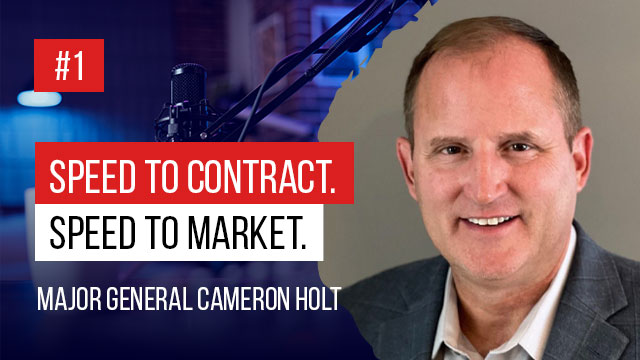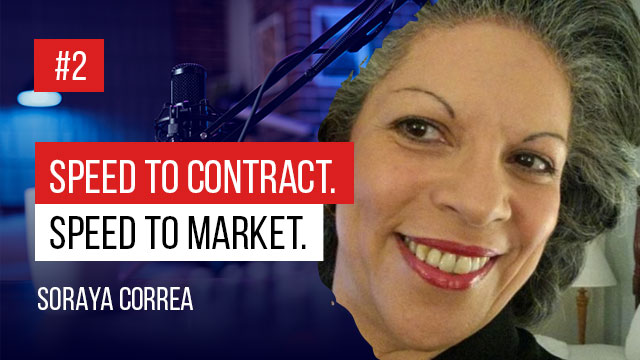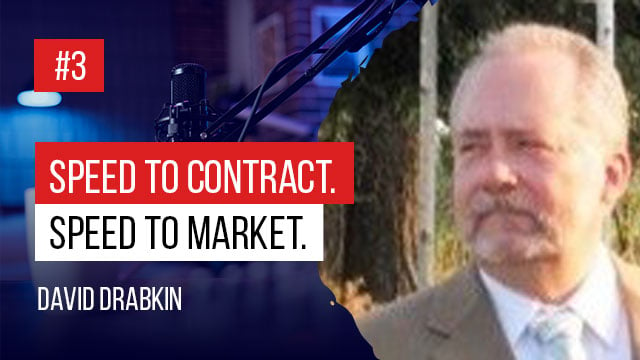FUSE DEFENSE & COMMERICAL BUSINESS MODELS
TO BENEFIT THE WARFIGHTER
WITH SHAY ASSAD, FORMER DIRECTOR OF DEFENSE PRICING IN THE DOD AND CEO OF RAYTHEON CO.'S ENGINEERING AND CONSTRUCTION BUSINESS
06:50 Don’t avoid risk by operating in all 3 with the same rule set
07:59 Traditional defense companies run differently than commercial
11:10 Create systems that make it easy to meet requirements
13:53 Develop commercial systems as companies do for themselves
15:10 Produce an estimating model with an actual cost foundation
16:35 Primes & subs should present a model that creates data correlation
17:54 An approach where both parties assume a degree of risk
18:54 Non-traditional firms are different. They’ve invested capital
20:14 Defense companies take no risk. Govt. makes all the investment
20:57 Govt. doesn’t have the skill set to deal with non-traditionals
21:49 Existing policies don’t incentivize companies to reduce costs
22:09 Speed, improvement, innovation, price, & cost-benefit
23:05 The PEO has to put their name on a document, for the warfighter
24:20 Process the data 10 times faster & ensure accuracy
24:52 Changes for significant procurements, tech, or spending only
25:26 Non-traditionals deserve a return on their investment
26:23 A degree of substantiation for anyone who wants to look at it
27:36 On the commercial side, don’t present it as a root canal
28:06 Commercial firms need assurance that pricing won’t be divulged
30:00 Buying products is different from buying services
32:06 Reward speed, quality, & price
32:55 Create an environment of trust
36:58 Reward transparent companies that submit proposals on time
06:50 Don’t avoid risk by operating in all 3 with the same rule set
07:59 Traditional defense companies run differently than commercial
11:10 Create systems that make it easy for companies to meet requirements
13:53 Develop commercial systems as companies do for themselves
15:10 Produce an estimating model with an actual cost foundation
16:35 Primes & subs should present a model that creates data correlation
17:54 An approach where both parties assume a degree of risk
18:54 Non-traditional firms should be handled differently. They’ve invested capital
20:14 Defense companies take no risk. Government makes the entire investment
20:57 Govt. doesn’t have the skill set to deal with non-traditionals
21:49 Existing policies don’t incentivize companies to reduce costs
22:09 Speed, improvement, innovation, price, & cost-benefit
23:05 The PEO has to put their name on a document, for the warfighter
24:20 Process the data 10 times faster & ensure accuracy
24:52 Changes for significant procurements, technology, or spending only
25:26 Non-traditionals deserve a return on their investment
26:23 A degree of substantiation for anyone who wants to look at it
27:36 On the commercial side, don’t present it as a root canal
28:06 Commercial firms need assurance that pricing won’t be divulged
30:00 Buying products is different than buying services
32:06 Reward speed, quality, & price
32:55 Create an environment of trust
36:58 Reward outstanding, transparent companies that submit proposals on time
Host Tim Templeton talks with Shay Assad, former Director of Defense Pricing in the DoD and CEO of Raytheon Co.’s Engineering and Construction Businesses. Among other topics, they discuss how deliberate risk can empower deliberate speed, why entrepreneurial companies deserve special handling by the government, and how a scenario of ‘cost trust’ can help the US truly reward innovation in commercial businesses.
BIOGRAPHY
Mr. Assad is one of our country's most recognized experts in defense procurement, acquisition, and policymaking. He served as Director of Defense Pricing, responsible for contract pricing matters within the Department of Defense. He also served as the Principal Advisor to the Undersecretary of Defense for Acquisition Technology and Logistics, and the Defense Acquisition Board on Acquisition and Procurement Negotiation Strategies for all major weapons systems, programs, and major automated information systems programs.
Mr. Assad was the Department of Defense's Senior Advisor for all program-related contract negotiation matters. After graduating with distinction from the US Naval Academy, he served two tours of duty aboard US Navy destroyers. He then served as the Naval Procurement Officer at the Navy Sea Systems Command.
Mr. Assad then entered the civilian workforce with the Raytheon Company and rose through the ranks to ultimately become the Chairman and Chief Executive officer of Raytheon's engineering and construction businesses with 11 offices worldwide, revenues of $2.7 billion, and 15,000 employees.
After retiring from Raytheon, Mr. Assad assumed the role of Director of Defense Procurement and Acquisition Policy. He then assumed the position of Acting Deputy Undersecretary of Defense for Acquisition and Technology, serving in an advisory function to the Secretary, Deputy Secretary, and Undersecretary of Defense on matters relating to the acquisition, integration, and protection of technology. From 2009 to 2011, he performed the duties of the Assistant Secretary of Defense for Acquisition.
Shay has received an impressive number of federal service awards and recognitions that are truly too numerous to cover in this introduction. However, I would like to point out a few: Mr. Assad was awarded the Secretary of Defense Distinguished Service Medal. He was also inducted into the Defense Acquisition University Hall of Fame in recognition of his service to the University. In 2015, Mr. Assad was the recipient of a distinguished Presidential Rank Award.
Biography
Mr. Assad is one of our country's most recognized experts in defense procurement, acquisition, and policymaking. He served as Director of Defense Pricing, responsible for contract pricing matters within the Department of Defense. He also served as the Principal Advisor to the Undersecretary of Defense for Acquisition Technology and Logistics, and the Defense Acquisition Board on Acquisition and Procurement Negotiation Strategies for all major weapons systems, programs, and major automated information systems programs.
Mr. Assad was the Department of Defense's Senior Advisor for all program-related contract negotiation matters. After graduating with distinction from the US Naval Academy, he served two tours of duty aboard US Navy destroyers. He then served as the Naval Procurement Officer at the Navy Sea Systems Command.
Mr. Assad then entered the civilian workforce with the Raytheon Company and rose through the ranks to ultimately become the Chairman and Chief Executive officer of Raytheon's engineering and construction businesses with 11 offices worldwide, revenues of $2.7 billion, and 15,000 employees.
After retiring from Raytheon, Mr. Assad assumed the role of Director of Defense Procurement and Acquisition Policy. He then assumed the position of Acting Deputy Undersecretary of Defense for Acquisition and Technology, serving in an advisory function to the Secretary, Deputy Secretary, and Undersecretary of Defense on matters relating to the acquisition, integration, and protection of technology. From 2009 to 2011, he performed the duties of the Assistant Secretary of Defense for Acquisition.
Shay has received an impressive number of federal service awards and recognitions that are truly too numerous to cover in this introduction. However, I would like to point out a few: Mr. Assad was awarded the Secretary of Defense Distinguished Service Medal. He was also inducted into the Defense Acquisition University Hall of Fame in recognition of his service to the University. In 2015, Mr. Assad was the recipient of a distinguished Presidential Rank Award.
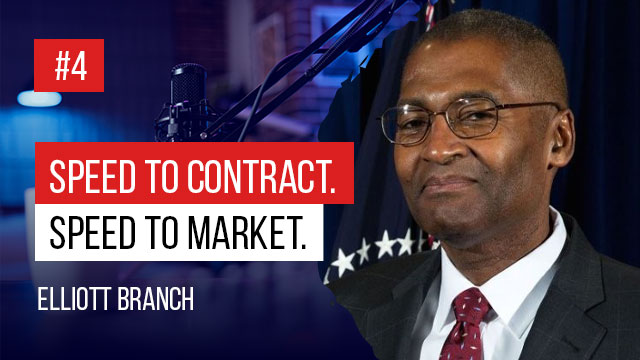
Make Value Analysis & Modular IP Systems a Reality
A conversation with Elliott Branch
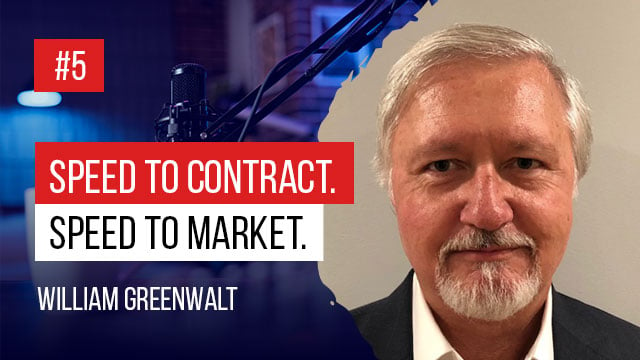
Arm Warfighters Faster through Mid-Tier Acquisition Authority
A conversation with William Greenwalt
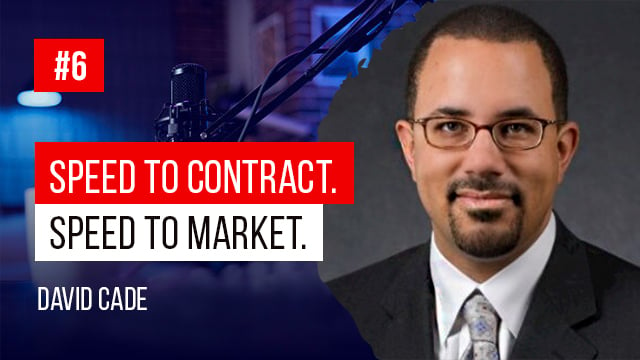
GOVERNMENT CAN SAVE TIME & MONEY
USING COMMERCIAL APPROACHES
A conversation with David Cade
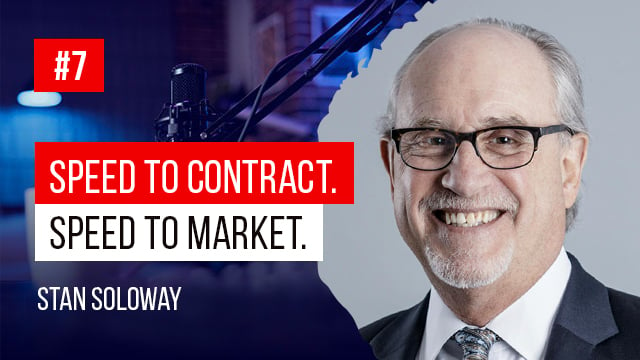
KNOW HOW TO FULLY LEVERAGE
OTAs & OTHER TOOLS & TECH
A conversation with Stan Soloway
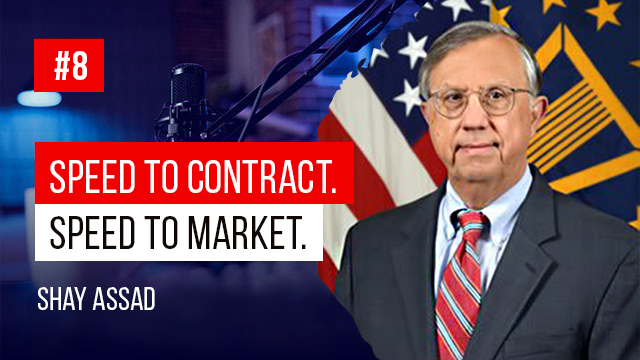
FUSE DEFENSE & COMMERICAL BUSINESS MODELS TO BENEFIT THE WARFIGHTER
A conversation with Shay Assad
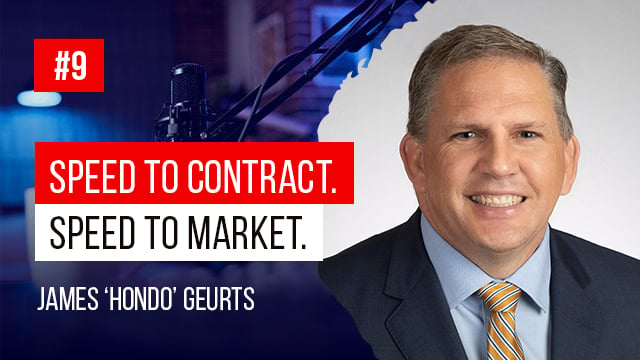
FROM $75B TO $150B IN CONTRACTS PER YEAR, USING FEWER RESOURCES
A conversation with James 'Hondo' Geurts
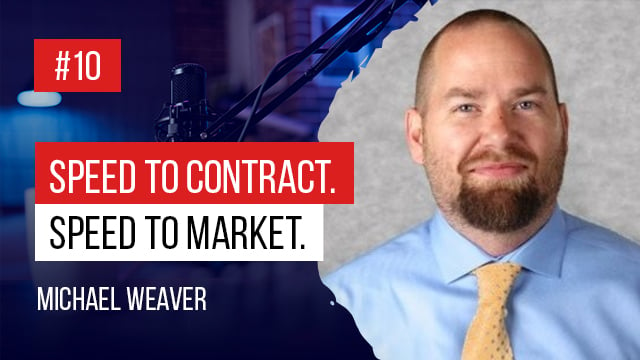
USE TECHNOLOGY TO CREATE MASSIVE CONTRACT MOMENTUM
A conversation with Michael Weaver

ACHIEVING PRICING EXCELLENCE DURING UNCERTAIN TIMES
Network and learn from the leaders in Government Contracting. Attend fascinating keynote sessions and live-panel discussions that include Speed to Contract. Speed to Market., at the Government Contract Pricing Summit, June 20 -22 2023, in San Diego CA.
